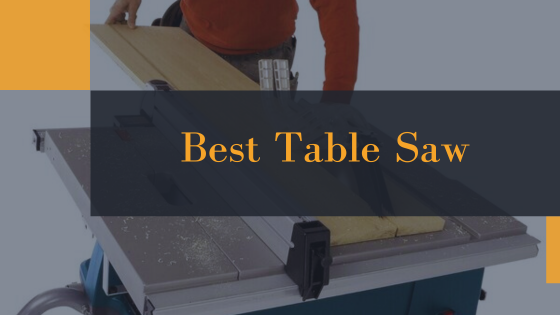Choosing the best table saw can seem like a daunting task for both beginners and professionals. With an abundance of options and technical jargon, apparent at first glance, making the right choice requires careful consideration. The guide on table saws from Table Sawer endorses the same sentiment, mentioning that the table saw is a companion to your world of woodworking.
Understand Your Needs
Let’s start with understanding your needs. Are you a weekend DIY-er looking to undertake small home projects, or are you a professional contractor requiring a heavy-duty saw for a construction site? The extent and frequency of use will help bring clarity. For instance, a lightweight, portable table saw would often suffice for light, occasional use, while professionals may require a more robust and precise cabinet saw.
Consider the Power and Performance
Check the horsepower, RPM (Rotations per Minute) and the type of blade before buying. High horsepower table saws are ideal for thick, hard materials. Lower horsepower saws can handle softer woods. Ensuring the RPM matches the material and type of cut you are making is vital for safety and the lifespan of your tool.
Look at the Features
Consider the features like the rip fence, miter gauge, dust collection port and safety measures. A sturdy and accurate rip fence is crucial for straight cuts, while a reliable miter gage significantly aids in achieving perfect angle cuts.
Evaluate your Workspace
Evaluate your workspace. Can it facilitate a large table saw, or are you constrained by space? Portable or job site saws are compact and easy to store, but they may lack the power and precision of larger cabinet saws.

Budget
The budget has a significant influence on your purchase decision. It’s important to remember that higher-priced models often come with additional features and may offer better accuracy and durability. However, it’s crucial to balance your needs with your financial means.
Research Brands and Reviews
There are many established brands of table saws that deliver reliable performance, such as Dewalt, Bosch, and SawStop. It’s advised to research various brands, consider their reputations, and read user reviews to get first-hand information about their strengths and weaknesses.
Safety Measures
Lastly, never compromise on safety measures. Look for features such as a riving knife, blade guards, anti-kickback pawls, and emergency stop functions. Remember that no woodworking task is ever more important than your safety.
Ask for Professional Advice
As highlighted by the Table Sawer website – www.TableSawer.com, it’s also advisable to seek professional advice when choosing a table saw, ensuring it exactly fits your needs.
Conclusion
In conclusion, the best table saw for you would depend on your specific needs, usage frequency, workspace, and budget. Always prioritize safety, carefully look at the features and specifications, and don’t hesitate to ask an expert or read online reviews. By performing due diligence beforehand, you’re bound to end up with a table saw that serves as a reliable partner in your woodworking journey.